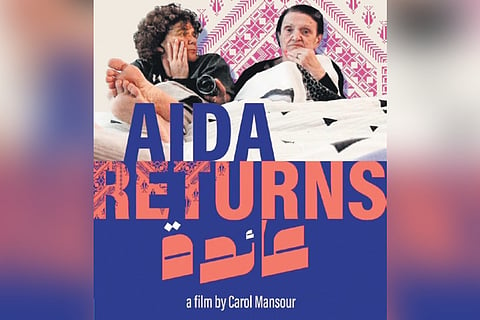

CHENNAI: “I have lived on the land long before swords turned man into prey. I belong there. When heaven mourns for her mother, I return heaven to her mother. And I cry so that a returning cloud might carry my tears. To break the rules, I have learned all the words needed for a trial by blood. I have learned and dismantled all the words in order to draw from them a single word: Home”
These are the lines of Palestinian poet and author Mahmoud Darwish taken from his poem ‘I Belong There’. The poet has explored themes of exile, melancholy, love, and longing for a country to which he was unable to return. It has been more than 150 days since the Israel-Gaza war broke out. Every day we see reminders of people struggling in their homeland, amid the war and other atrocities. Before the adversity started to worsen, Carol Mansour, an independent documentary filmmaker, focussed her lens on her mother Aida Abboud, capturing a documentary film Aida Returns (2019) which tracks the journey to her homeland Yafa. Koogai Thiraipada Iyakkam gears up to screen the film in Chennai with Alt+Art, as a part of Synchronised Global Screening.
Capturing a journey
Aida, a native of Yafa, Palestine, was forcibly removed from her house in 1948, with things barely enough for a two-week vacation. Little did she know that she wouldn’t see it again in her lifetime. Explaining the film journey, the director notes, “When I started filming my mother (Aida), it was for purely personal reasons, for once she developed Alzheimer’s disease, she steadily lost her memory and her sense of identity. At the time I felt the need to “hold on” to my mother before the disease took over. She was in Montreal while I was in Beirut and my visits became more frequent as she became weaker.”
Ever since Carol started filming her mother in 2006, the conversation would inevitably return to Yafa and her childhood and youth there before 1948. Despite having had a very privileged life in Beirut, Cairo, and Montreal, it was always Yafa, shares the director. She says, “Aida had been clear that she wished to be cremated when she passed away. After the funeral, I returned to Beirut bringing with me all the footage of our interviews along with part of her ashes. I always felt that it would have been her desire to one day return to Yafa for her final rest. I held onto the ashes in the hope that one day an opportunity would present itself for me to take her back. Close to four years later, I finally had the strength to watch the footage. A clear theme emerged — she wished to return.”
By chance, when Carol’s friend Tanya visited her she suggested that she carry the ashes back. As a US citizen, she would be able to do it. “What started as a casual conversation, developed massive momentum, as we divided the ashes into two packages, one of which she gave to another American colleague who would carry them to Jerusalem. We filmed this process on her iPhone for me to show to friends and family. She also filmed the entire trip to Ramallah, so that I could be with them virtually. I received tens of short videos as they made it back to Palestine, meeting strangers along the way willing to help Aida on her return journey, all of which were captured on video,” she shares.
Krishna and Jay, organisers of Alt+Art, say, “This is a versatile and controversial film, an important watch, especially during the current situation. The film is simultaneously screened in other places like Amman, Amsterdam, Athens, Bahrain, Barcelona, Doha, Dubai, New York, Palestine, and so on. It is also happening on the birthday of Aida. We are collaborating with Vanaja Collective which is an organisation to identify, create and establish spaces for historically oppressed communities. We are more than happy with this collaboration.” Entry is free and the venue has a capacity of 70 people.
The screening will be held at Koogai Thiraipada Iyakkam at 7 pm.